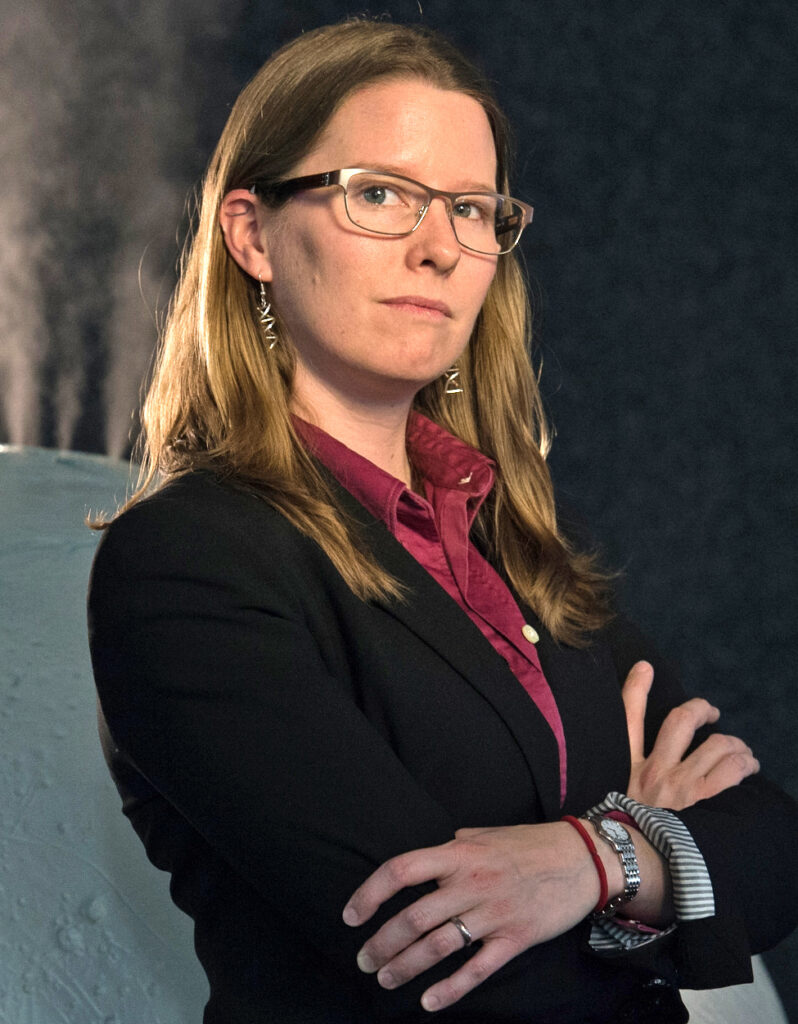Dr. Morgan Cable will share her otherworldly observations at IHMC on April 20th.
Growing up, NASA astrobiologist Dr. Morgan Cable spent two of her adolescent years on the Space Coast, watching space shuttle launches.
“My dad moonlighted as a professor because he loves teaching,” she explains. “He worked at the local community college (now Eastern Florida State College) and let me use the lab there for a school project. I ended up taking volcanic rocks (basalt) and mixing them with water in conditions like what’s under the surface of Mars, where things are a little bit warmer. I then put in this special kind of bacteria that lives off a reaction between volcanic rock and water that makes hydrogen gas.”

The experiment worked, setting Cable on a lifelong hunt for otherworldly biomarkers.
Her fieldwork has taken her to extreme environments, such as the Atacama Desert, the ice fields at the summit of Mount Kilimanjaro and Iceland’s lava fields.
These days, she’s preparing for missions focused on the Jupiter moon Europa and the Saturn moon Enceladus. Both are among a small number of heavenly bodies observed to have oceans beneath frozen outer shells. Enceladus sprays liquid into space and Cable is working on what she calls a robotic snake that will descend its vents to look for evidence of life.
“If we find some indicators on the surface, then we can tie them to what the surface is made up of and see if there are any clues hidden there,” she explains.
If that’s true, Cable adds, exoplanets around other stars could host life forms.
“Planetary science and astrobiology are, by their very nature, interdisciplinary fields, and I love collaboration,” she offers. “I’m a chemist by training (her Ph.D. is in inorganic chemistry). I also work with geologists and biologists. We have marine biologists and oceanographers on our teams now because we’re studying alien oceans.”
And as with many NASA projects, engineering is involved.
“We’ve got people doing robotics and autonomy, mechanical engineering and all of the different things you need to be able to put a spacecraft together,” Cable shares. “It’s really fun to be able to push outside of your comfort zone, working on hard problems that no one’s ever solved before.” OS
Hear Dr. Morgan Cable discuss “Exploring Ocean Worlds” at Ocala’s Institute for Human and Machine Cognition at 5:30pm April 20th. To register, visit ihmc.us/life/evening_lectures/ocala-lecture-series






